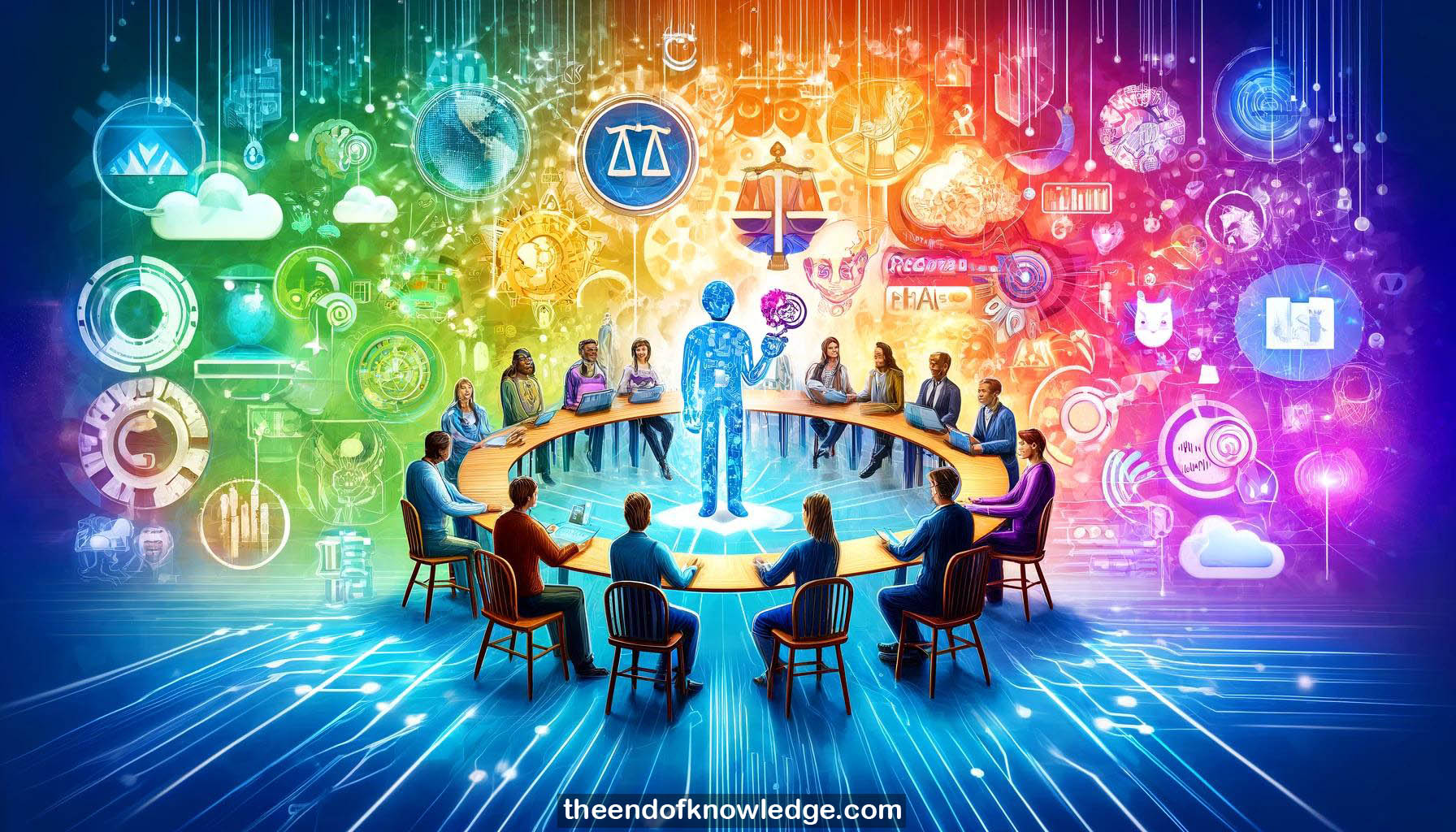 >
>
Concept Graph & Resume using Claude 3 Opus | Chat GPT4o | Llama 3:
Resume:
1.- Event Organization The event was organized by the ITU in partnership with 40 UN sister organizations, co-convened with Switzerland, focusing on practical AI applications.
2.- Event Goal Aim to identify AI applications to advance UN sustainable development goals and scale solutions for global impact.
3.- Audience Engagement Participants encouraged to use the live video wall for questions, comments, and engaging discussions with panelists and experts.
4.- Session Introduction Introduction by interim director of UNESCO’s Social and Human Sciences sector, emphasizing responsible AI’s importance.
5.- Ethical Approach Emphasis on the need for an ethical approach to AI, focusing on human rights and dignity.
6.- UNESCO’s Core Values UNESCO's AI ethics recommendation includes respect for human rights, environmental flourishing, inclusiveness, and peaceful societies.
7.- Recommendation Adoption UNESCO's AI ethics recommendation adopted by 193 member states in 2021, highlighting global commitment to responsible AI.
8.- Keynote Speaker Dr. Nashlie Sephus, expert in machine learning and algorithmic bias, shared insights on responsible AI and industry practices.
9.- Privacy and Fairness Responsible AI should respect privacy, fairness, explainability, robustness, transparency, and governance.
10.- Ethical AI Systems AI systems must respect values and address privacy, fairness, and transparency to serve humanity effectively.
11.- Bias in AI Example of gender classifiers potentially discriminating against non-binary people, highlighting the need for bias mitigation.
12.- Privacy Concerns Over 50% of people’s faces in the US are included in datasets without their knowledge, raising privacy issues.
13.- Facial Recognition AWS placed a moratorium on selling facial recognition tech to law enforcement due to privacy and bias concerns.
14.- AI’s Economic Impact Global spending on AI projected to reach $204 billion by 2025, with significant organizational transformation expected.
15.- Diverse Leadership Nurturing diverse leaders in AI is crucial for ensuring responsible and inclusive technological development.
16.- Human Rights Respect Responsible AI must be innovative, trustworthy, and respect human rights and democratic values.
17.- Operational Challenges Organizations struggle with operationalizing responsible AI despite recognizing its transformative potential.
18.- AI Model Explainability Ensuring AI systems offer clear rationales for their decisions is crucial for accountability and trust.
19.- Robustness and Transparency AI systems should be robust against adversarial attacks and transparent to users about their operations.
20.- Governance in AI Governance structures must enforce responsible AI practices across all stakeholders involved in the AI lifecycle.
21.- Ethical Data Collection Collecting data ethically, ensuring consent, and maintaining confidentiality are vital for responsible AI development.
22.- AI Education Promoting AI and ethics education from an early age can help build a more informed and responsible AI workforce.
23.- Government’s Role Governments should ensure appropriate AI use and develop risk-based regulations with input from various stakeholders.
24.- Industry Accountability Businesses must be accountable for responsible AI practices, with documentation and external assessments to ensure compliance.
25.- Trade-offs in AI Balancing trade-offs in fairness, privacy, and performance is essential for developing responsible AI solutions.
26.- Equitable Opportunities AI systems should provide equitable opportunities, considering demographic disparities and marginalized groups.
27.- Intersectional Fairness Addressing intersectional fairness is critical to ensure AI systems do not disproportionately harm specific subgroups.
28.- Stakeholder Feedback Incorporating feedback from diverse stakeholders helps refine and improve AI systems’ fairness and effectiveness.
29.- Continuous Monitoring Ongoing monitoring and evaluation of AI systems are necessary to maintain their performance and fairness over time.
30.- Public Awareness Raising public awareness about AI’s benefits and risks is essential for fostering trust and responsible adoption of technology.
Knowledge Vault built byDavid Vivancos 2024